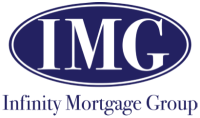
Understanding Your Loan Options
Buying a home is one of the biggest investments most people will make in their lifetime, and for many, it involves taking out a mortgage loan. Not all mortgage loans are created equal, and understanding your mortgage loan options is critical to making an informed decision that suits your financial situation and goals. We understand that purchasing a home can be a daunting undertaking on its own, so we hope to demystify some of the common options for borrowers to give you more understanding and control in financing.
Finding the Right Loan for You
There are many different types of mortgage loans available in the market, and each has its unique features and benefits. For example, a fixed-rate mortgage offers a set interest rate for the life of the loan, while an adjustable-rate mortgage has an interest rate that can change over time. There are also government-backed loans, such as FHA and VA loans, that have specific eligibility criteria and requirements.
By understanding your mortgage loan options, you can find the loan that best suits your needs and financial situation. For example, if you plan to stay in your home for a long time, a fixed-rate mortgage may be the best option for you, while an adjustable-rate mortgage may be more suitable if you plan to move or refinance soon.
Buying a home is a long-term investment, and your mortgage loan is a significant financial commitment that will impact your finances for years to come. By understanding your options, you can better plan your future and ensure that you are making a decision that aligns with your financial goals. If you plan to retire soon, you may want to consider a shorter-term mortgage loan that will be paid off before you retire.
VA Loans
VA mortgage loans are exclusively available to eligible military members, veterans, and surviving spouses. While VA loans offer several advantages, understanding the drawbacks is key to making an educated decision.
Pros:
- No down payment required: One of the most significant advantages of a VA loan is that no down payment is required. This can be a huge help for those who may not have saved up enough for a down payment, as it can allow them to purchase a home with no money down.
- No mortgage insurance: Unlike many other types of loans, VA loans do not require mortgage insurance, even if the loan-to-value ratio is higher than 80%. This can save borrowers a significant amount of money each month, as mortgage insurance can add potentially hundreds of dollars to a monthly payment.
- Lower interest rates: VA loans typically offer lower interest rates than conventional loans, which can save borrowers thousands of dollars over the life of the loan.
- Easier qualification: VA loans are generally easier to qualify for than conventional loans, as the VA has more lenient credit score requirements and debt-to-income ratios.
- No prepayment penalty: VA loans do not have a prepayment penalty, which means borrowers can pay off the loan early without incurring any fees.
Cons:
- Funding fee: While VA loans do not require a down payment or mortgage insurance, they do require a funding fee, which is a one-time fee paid at closing. The amount of the fee varies depending on the borrower’s service history, loan amount, and other factors, but it can be several thousand dollars. However, veterans with an eligible disability related to their service may be able to waive this fee entirely. Check with a loan originator to learn more!
- Limited availability: VA loans are only available to eligible military members, veterans, and their surviving spouses, so not everyone can take advantage of this type of loan.
- Property restrictions: VA loans have certain property requirements, such as the property must be the borrower’s primary residence, and it must meet certain safety and sanitation standards.
- Appraisal process: VA loans require a strict appraisal process, which can sometimes lead to delays or additional costs. However, the stringent appraisal standards could potentially work in your favor if you agreed to waive inspection as a part of your offer on the home, by finding potential red flags that may otherwise be overlooked.
- More paperwork: VA loans require more paperwork than conventional loans. This can make the loan process more time-consuming and cumbersome.
- Funding delays: While VA loans offer several advantages, the funding process can sometimes take longer than with other types of loans, which can be a drawback for borrowers who need to close on a home quickly. Be sure to speak with your real estate agent and loan originator if this is a concern.
VA loans offer several significant advantages to those that are eligible, however, it's important to understand the potential drawbacks that come with them so that you and your lending team can be best prepared.
Click here to check your VA Loan eligibility for free in 60 seconds!
FHA Loans
An FHA loan is a mortgage that is insured by the Federal Housing Administration (FHA). It is a popular option for first-time homebuyers or those with less-than-perfect credit. While FHA loans offer several benefits, they also come with a few drawbacks.
Pros:
- Lower credit score requirements: FHA loans are designed to help people with less-than-perfect credit. The minimum credit score required for an FHA loan is 580. This is much lower than the minimum credit score requirement for a conventional loan, which is typically around 620.
- Lower down payment requirement: FHA loans require a minimum down payment of 3.5%. This is significantly lower than the minimum down payment required for a conventional loan, which is lender-specific and can typically range from 5% to 20%.
- Flexible income requirements: With FHA, lenders are allowed to consider income from multiple sources, including part-time jobs, overtime pay, and bonuses, which may be more difficult to use for a conventional loan.
- Closing cost assistance: FHA loans allow sellers to contribute up to 6% of the purchase price towards the buyer’s closing costs. This can help reduce the amount of money a buyer needs to bring to closing.
- Streamlined refinancing: If you have an FHA loan and interest rates drop, you may be eligible for streamlined refinancing. This means you can refinance your loan without going through a full underwriting process, which can save you time and money.
Cons:
- Mortgage insurance premiums: FHA loans require mortgage insurance premiums (MIP), but the conditions of which depend on the loan scenario. This is an upfront fee and an annual fee that is added to the monthly mortgage payment.
- Lower loan limits: FHA loan limits vary by county and are typically lower than conventional loan limits. This means you may not be able to borrow as much as you need to purchase a home in your desired area.
- Property standards: FHA loans require the property to meet certain standards. This means that if the property you are interested in purchasing does not meet these standards, you may not be able to get an FHA loan for that property.
- More paperwork: FHA loans require more paperwork than conventional loans. This can make the loan process more time-consuming and cumbersome.
- Limited availability: Not all lenders offer FHA loans. This means you may need to shop around to find a lender that offers FHA loans in your area.
Click here to check your FHA Loan eligibility for free in 60 seconds!
Conventional Loans
One of the most common types of financing is a conventional home loan, which is a mortgage not guaranteed or insured by a government agency. Conventional mortgage guidelines are determined by the two largest US mortgage buyers: Fannie Mae and Freddie Mac. While conventional home loans have their advantages, they also have some drawbacks that buyers should be aware of before making a final decision.
Pros:
- Flexible loan terms: Conventional home loans offer a variety of loan terms, including fixed-rate and adjustable-rate mortgages, and terms ranging from 10 to 30 years. This flexibility allows borrowers to choose a loan that best fits their financial situation.
- Lower interest rates: Compared to other types of loans, conventional home loans generally offer lower interest rates, which can save borrowers thousands of dollars over the life of the loan.
- No mortgage insurance required: Unlike some government-backed loans, conventional home loans do not require borrowers to pay for mortgage insurance if they make a down payment of at least 20% of the home’s purchase price. Also, unlike FHA loans, mortgage insurance can be dropped if you refinance at a loan-to-value ratio (LTV) of 80%, or the mortgage insurance will be dropped from your payments automatically when you've paid off enough of your loan to drop the LTV to 78%.
- Fewer property restrictions: Conventional home loans do not have as stringent property restrictions, which means borrowers can use them to purchase a wide range of homes, including investment properties and vacation homes.
Cons:
- Higher credit score requirements: To qualify for a conventional home loan, borrowers typically need a higher credit score than they would for other types of loans. This can make it difficult for some borrowers to obtain financing. Most lenders offer the best rates to borrowers with a 740+ FICO credit score.
- Larger down payment required: To avoid paying mortgage insurance, borrowers must make a down payment of at least 20% of the home’s purchase price. This can be a significant amount of money, which can make it difficult for some buyers to afford a home. However, unlike FHA loans, conventional mortgage insurance is not required for the life of the loan and will therefore generally cost less in the long run.
- Limited government protections: Because conventional home loans are not backed by the government, borrowers do not have access to certain protections, such as the ability to participate in government-sponsored programs to help them avoid foreclosure.
- Stringent underwriting requirements: Conventional home loans are subject to strict underwriting requirements, which can make the application process more time-consuming and complicated.
Click here to to check your Conventional Loan eligibility for free in 60 seconds!
Jumbo Loans
Limits on the amount available to borrow with a conforming loan are determined by Fannie Mae and Freddie Mac on a county basis, however, in today's competitive markets in areas like Seattle and Tacoma, the conforming loan limit may still not be enough to purchase a home. If you’re looking to purchase a home that is above the conforming loan limits, then you may need to consider a jumbo home loan. These loans come with their own set of pros and cons that you should consider before deciding.
Pros:
- High Loan Amount: One of the main advantages of a jumbo home loan is that it allows you to borrow a large amount of money to purchase a high-value property. This can be beneficial for those looking to purchase a luxury property or a home in a high-cost area.
- Flexibility: Jumbo home loans offer more flexibility in terms of credit score, debt-to-income ratio, and other eligibility requirements. This means that if you have a less-than-perfect credit score, you may still be able to qualify for a jumbo loan.
- Competitive Interest Rates: Despite the larger loan amounts, jumbo home loans can offer competitive interest rates. This is because lenders compete to attract borrowers with high credit scores and large down payments.
Cons:
- Higher Down Payment: Jumbo home loans require a higher down payment than conforming loans. Typically, lenders require a down payment of 10% to 20% of the home’s value. This can be a significant barrier to entry for many buyers, especially on a higher-value property.
- Competitive Rates with a Cost: While some jumbo loans can offer competitive rates, those rates may require that broker fees be borrower paid rather than paid by the lender, which is an additional upfront cost to consider. It's important to consider your options with a loan originator to figure out if the monthly savings gained by a competitive rate is worth the upfront cost of the broker fee.
- Stricter Qualification Criteria: While jumbo home loans may offer more flexibility than conforming loans, they still have stricter qualification criteria. Lenders may require higher credit scores, lower debt-to-income ratios, and more extensive financial documentation.
- Limited Availability: Jumbo home loans are not as widely available as conforming loans. This is because they are riskier for lenders, and the demand for them is relatively low. This means that you may need to do some research to find a lender that offers jumbo loans.
Click here to check your Jumbo Loan eligibility for free in 60 seconds!
Non-QM Loans
When it comes to buying a home, many people assume that a traditional mortgage is the only option. However, other types of home loans are available, including non-QM (qualified mortgage) loans. Non-QM loans are designed for borrowers who may not meet the strict qualification requirements of traditional mortgages but are still able to repay the loan. Here are some pros and cons of non-QM home loans to consider.
Pros:
- Flexibility: Non-QM loans are much more flexible than traditional mortgages. They can be customized to fit the needs of each borrower, which means that borrowers can often qualify for a loan even if they have unique circumstances that would not be accepted by a traditional lender.
- Higher Loan Amounts: Non-QM loans often have higher loan amounts than traditional mortgages, which means that borrowers can buy a more expensive home or borrow more money to make renovations.
- Less Documentation: Non-QM loans typically require less documentation than traditional mortgages, which can make the application process faster and easier.
- Faster Approval: Because non-QM loans are not subject to the same strict regulations as traditional mortgages, they can often be approved more quickly.
Cons:
- Higher Interest Rates: Non-QM loans often come with higher interest rates than traditional mortgages. This is because they are considered riskier loans for lenders.
- Shorter Loan Terms: Non-QM loans may have shorter loan terms than traditional mortgages, which means that borrowers may have higher monthly payments.
- Higher Fees: Non-QM loans often come with higher fees than traditional mortgages. Borrowers may be charged higher application fees, origination fees, and other closing costs.
- Riskier for Borrowers: Non-QM loans are considered riskier for borrowers because they often have less favorable terms and higher fees. Borrowers may find it more difficult to keep up with payments and may be at risk of defaulting on the loan.
Non-QM loans can be a good option for borrowers who may not qualify for a traditional mortgage, but important to carefully weigh the pros and cons with the help of a loan originator before deciding if a non-QM loan is a right choice for your home-buying needs.
High Balance Loans
Borrowers in King, Pierce, and Snohomish counties have another option for loans that exceed the conforming loan limit: High Balance Loans. As of January 1, 2023, the conforming limit for conventional loans across all Washington counties is $726,200, but borrowers in King, Pierce, and Snohomish can apply for a high balance loan up to $977,500. High-balance loans are a good happy-medium option for borrowers in high-cost-of-living areas that offer a higher balance than conventional loans but with fewer drawbacks than one might find with a jumbo. As always, it is important to fully consider the pros and cons of High Balance loans for your scenario.
Pros:
- Higher loan limits: One of the main benefits of a high-balance loan is that it allows borrowers to borrow more money than they would be able to with a standard conventional loan. This can be particularly useful for borrowers who are looking to purchase a home in an expensive area where home prices are high.
- Lower interest rates: High-balance loans may offer lower interest rates than jumbo loans. This is because high-balance loans are still considered conforming loans, meaning they meet the guidelines set by Fannie Mae and Freddie Mac. Conforming loans are generally considered less risky for lenders, so they may offer lower interest rates to borrowers.
- Flexibility: High-balance loans can be used for a variety of purposes, including purchasing a new home, refinancing an existing mortgage, or taking cash out to pay for home improvements or other expenses. This flexibility can make a high-balance loan an attractive option for borrowers who need to borrow a large amount of money.
Cons:
- Higher down payment: High-balance loans typically require a larger down payment than a standard conventional loan. This is because lenders consider high-balance loans to be riskier than conventional loans, so they require borrowers to have more skin in the game.
- Stricter qualification requirements: In addition to a larger down payment, high-balance loans may also have stricter qualification requirements than conventional loans. Borrowers may need to have a higher credit score, a lower debt-to-income ratio, and more assets to qualify for a high-balance loan.
- Higher fees: High-balance loans may come with higher fees than conventional loans. This can include origination fees, underwriting fees, and other closing costs. These fees can add up quickly, so borrowers should be aware of the total cost of the loan before deciding to move forward.
Still Unsure?
If you're unsure which option is right for you or have questions about the options available to you, a mortgage broker is a great resource to help you navigate what you qualify for, which lenders offer competitive options, and what types of loans are optimal for your financial situation, housing needs, and short-term and long-term goals.

